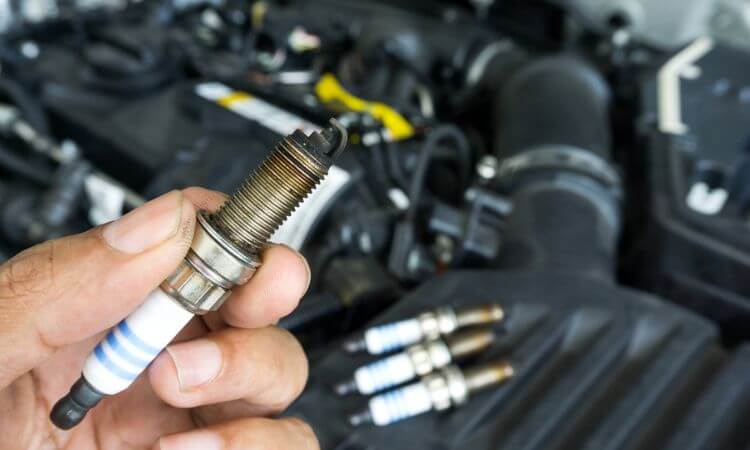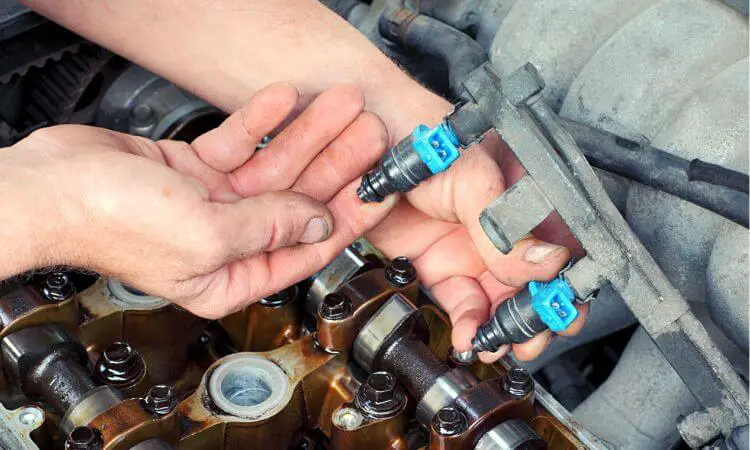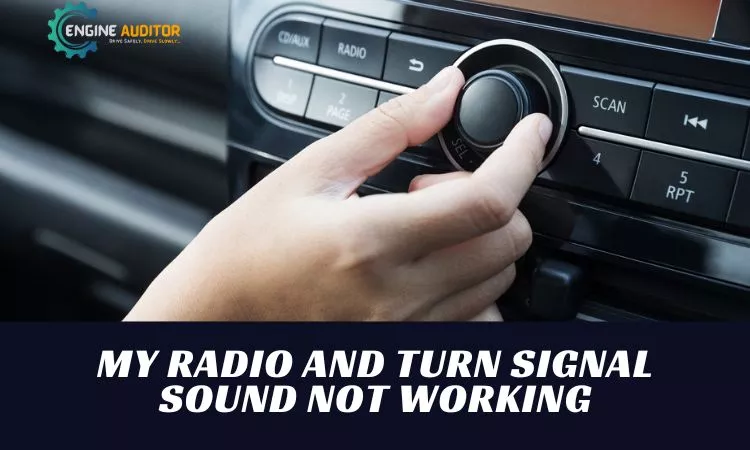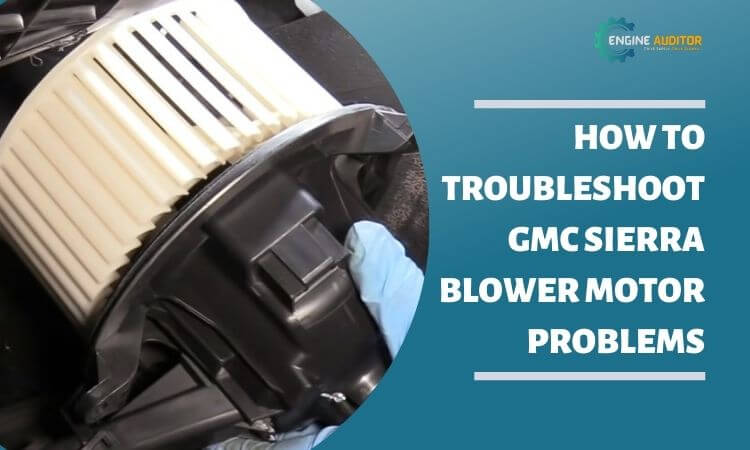Hey there! This post contains affiliate links to products. We may receive a commission for purchases made through these links. But it never influences our product selection process.
The Dodge Charger is an excellent vehicle that ensures a smooth riding experience. However, you may experience a ticking noise when accelerating for various reasons. Fortunately, most of the problems can be fixed easily if you know how to fix them.
Ticking noises often happen due to low oil levels. You can refill the oil to resolve the issue. However, other issues, such as worn-out spark plugs, ignition system issues, exhaust leaks, and fuel injector firing, can be the culprits. You also check for them to fix the problem.
Stay connected and learn how to fix the Dodge charger ticking noise when accelerating. Let’s get started.
Why is My Dodge Charger Making a Ticking Noise?
If you are experiencing ticking noises on your Dodge Charger, there can be several causes for that issue. But mostly, it happens due to the following problems.
- Low Oil Level
- Worn-out spark plugs
- Problem in Ignition System
- Exhaust Leak
- Fuel Injectors Firing
Are you experiencing problems with the brake controller on your dodge ram? Must visit this blog: 2012 Dodge Ram trailer brake controller problems.
Dodge Charger Ticking Noise When Accelerating [Problems & Solutions]

Problem 1: Low Oil Level
The engine components need proper lubrication to perform their functions smoothly. If the engine level is low, it may cause problems with lubrication. Improper lubrication can cause ticking sounds when accelerating. It increases the friction between the components and may generate a ticking sound when moving.
Solution:

- Park your Dodge Charger on a level surface and turn its engine off.
- Locate the oil dipstick and remove the dipstick
- Clean the dipstick, reinsert it in the oil tank, and remove it. Now check the oil level and ensure it is at the recommended level
- If the oil level is low, refill the oil. I recommend Valvoline Advanced Full Synthetic SAE 0W-20 Motor Oil for the Dodge Charger. It is an excellent oil that performs excellently in all weather conditions.
- Once you refill the oil, start the engine and leave it idle for a few minutes, and then take a test drive to ensure there is no ticking sound.
Problem 2: Worn Out Spark Plugs
Worn-out spark plugs may be the reason for the ticking noise when accelerating. The plug may dislodge from its correct position; if this happens, it creates a gap in the housing. A gap may cause a leak of exhaust gases that may produce a ticking sound from your engine.
Solution:

- Locate the spark plug in the Dodge Charger; it is usually located on the engine’s cylinder head.
- Once located, remove each plug and check each one for wear and tear
- Replace all the worn-out plugs with the same amperage as the old spark plugs
- While replacing the worn-out plugs, tighten each plug properly and connect each one with connectors
- After replacing all plugs, start the engine and ensure the ticking sound is eliminated
It may help you fix the issue with the Dodge Ram brake bleeding sequence.
Problem 3: Problem in Ignition System
Problems in the ignition system, such as a failing or intermittent coil, may make the motor run improperly. Improper motor functioning can cause a misfire that may generate unwanted noises, such as ticking noises while riding.
Solution:
- Take an OBD2 scanner to scan the error; I recommend VDIAGTOOL OBD2 Scanner for accurate results on your Dodge charger
- Once you have diagnosed the problem, remove the ignition system screws and locate the coil
- Make sure the coil is okay; if the coil is damaged, replace it
- Clear the codes after replacing the coil, start the engine, and listen for ticking noises to make sure there are none.
Problem 4: Exhaust Leak
Exhaust leaks are a frequent issue that might not be a problem while driving. But it causes frustration when you hear a continuous ticking noise while driving due to pressure from an exhaust leak.
Solution:
- Check the exhaust leak first, then turn on your car and listen for a ticking sound close to your doge charge exhaust system.
- While identifying the ticking sound, check the exhaust manifold gasket and connections for leaks. You may also need to check the pipes for cracks, holes, or rust
- Once the leak is found in the exhaust system, repair it if possible, but if the gap is wider, replace the pipe or other damaged components
- Also, check the clamps and connections to ensure there is no leak
- Once completed, take a test drive and ensure that when you accelerate, no such sounds are produced.
Problem 5: Fuel Injectors Firing
Fuel injectors deliver the right amount of fuel to the internal combustion chamber for efficient operation. However, fuel injector issues can result in firing, and over time, you might hear a loud ticking noise, which can be annoying while driving.
Solution:

- Park your vehicle on a level surface and leave the engine switch on
- Try to diagnose the ticking sound near the injector while accelerating
- Once the sound is confirmed, check for damage, loose connections, or injector leaks.
- If there are dust or oil deposits, you can remove them using fuel cleaners
- But if the fuel injectors are damaged, replace them.
- After replacing, ensure there is no ticking noise.
The Various Noises Experienced in a Dodge Charger When Accelerating:
| Noise Type | Possible Causes | Solutions |
| Dodge charger rattling noise when accelerating | ball joints, struts or strut mounts, or a problem with the sway bar links | Repair or replace ball joints, struts, or bar links |
| Dodge charger whining noise when accelerating | Low Transmission Fluid | Refill the transmission fluid |
| Dodge charger squeaking noise when accelerating | Failing Water Pump Pulley | Replace the damaged bearings in the pulley |
| Dodge charger grinding noise when accelerating | Transmission or differential issues, bad wheel bearings or CV joints, or loose motor mounts. | Check for transmission issues and remove them, check for wheel bearings and replace them if needed, also check for loose motor and ensure it is tightly mounted |
| Dodge Charger makes a clicking noise when accelerating | At low oil level or pressure, and an issue with the ignition system, or an exhaust leak. | Refill oil, check for the ignition system and exhaust leaks to solve the issue |
| Dodge charger whistling noise when accelerating | Vacuum leak | Repair the leak in the vacuum pipe |
Are you facing problems with Dodge Ram brake lights? It may help you fix the issue: Dodge Ram brake lights not working.
Seeking Professional Assistance
Don’t worry about the Dodge Charger’s ticking noise when accelerating your vehicle because most issues are minor and can be fixed.
However, if you tried all the above solutions but failed to resolve the issue, it is better to call for professional assistance instead of wasting time.
A professional person may diagnose the correct issue and fix it permanently and quickly.
Fix the new ceramic brake pad noise issue quickly after reading this blog: New ceramic brake pads make a grinding noise.
Frequently Asked Questions (FAQs):
Why is the Dodge charger ticking noise when idle?
When you are experiencing a ticking noise on your Dodge charger, even at idle, you must check for oil level, oil pressure, and exhaust leak. However, you may need to check the ignition system for details.
How long can I drive a Dodge charger with a Ticking Noise?
There is not much of an issue when you hear the ticking noise when accelerating. However, if you ignore it over time, such noise may become louder, which causes frustration. It can be risky if you have a low oil level; it can cause engine seizing, which may increase your expenses by thousands of dollars.
How much is it to fix the ticking sound on the Dodge charger?
There is no exact answer to that question because it depends on the problem diagnosis. A minor issue, such as a low oil level, can be fixed for a few dollars. But if it happens due to major issues requiring parts replaced, it may take hundreds of dollars to resolve.
Can using the wrong oil cause a ticking noise?
Yes, it can happen; the wrong oil can cause poor oil circulation or low oil levels. A low oil level may increase friction, producing a ticking noise when accelerating. Always use the correct oil for consistent performance.
Conclusion
If you do not take good care of your Dodge Charger, it may start to tick. But no worries; it does not affect your vehicle’s performance except for a louder noise or if the problem is in the engine itself. You can also fix the issue after diagnosing the proper reason to make your driving smooth.






